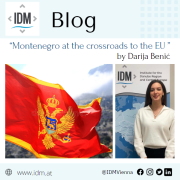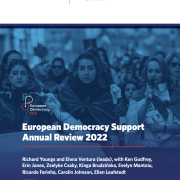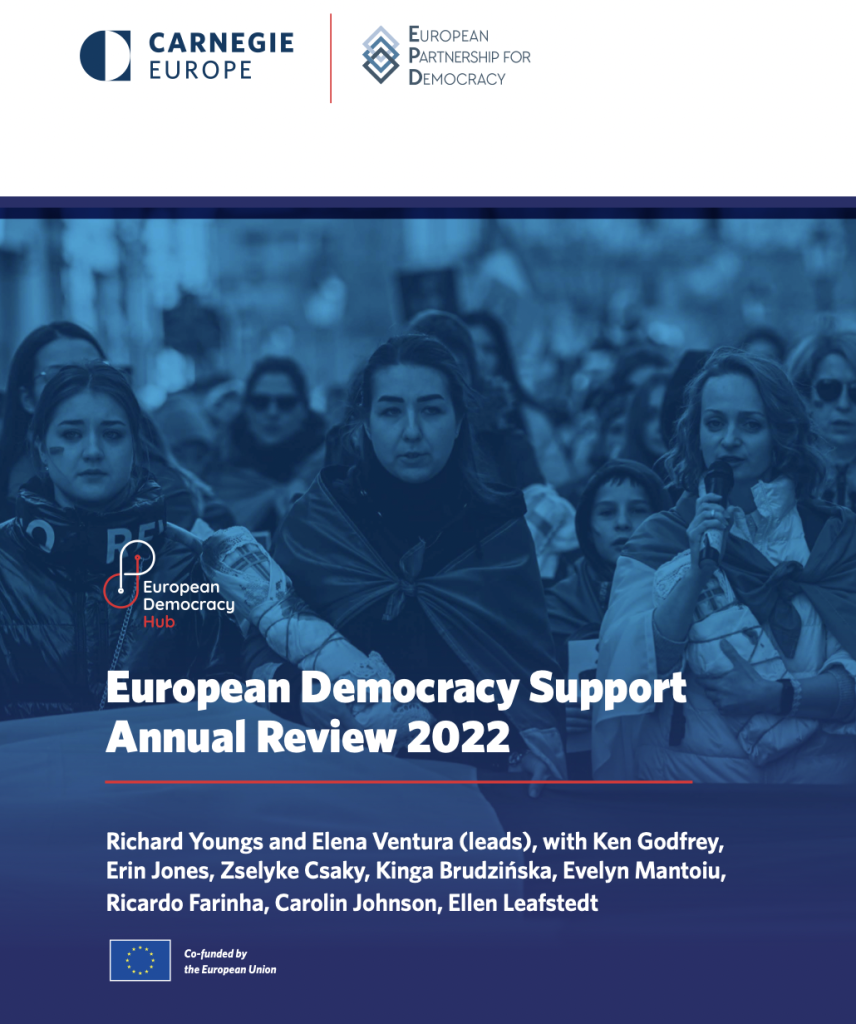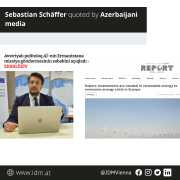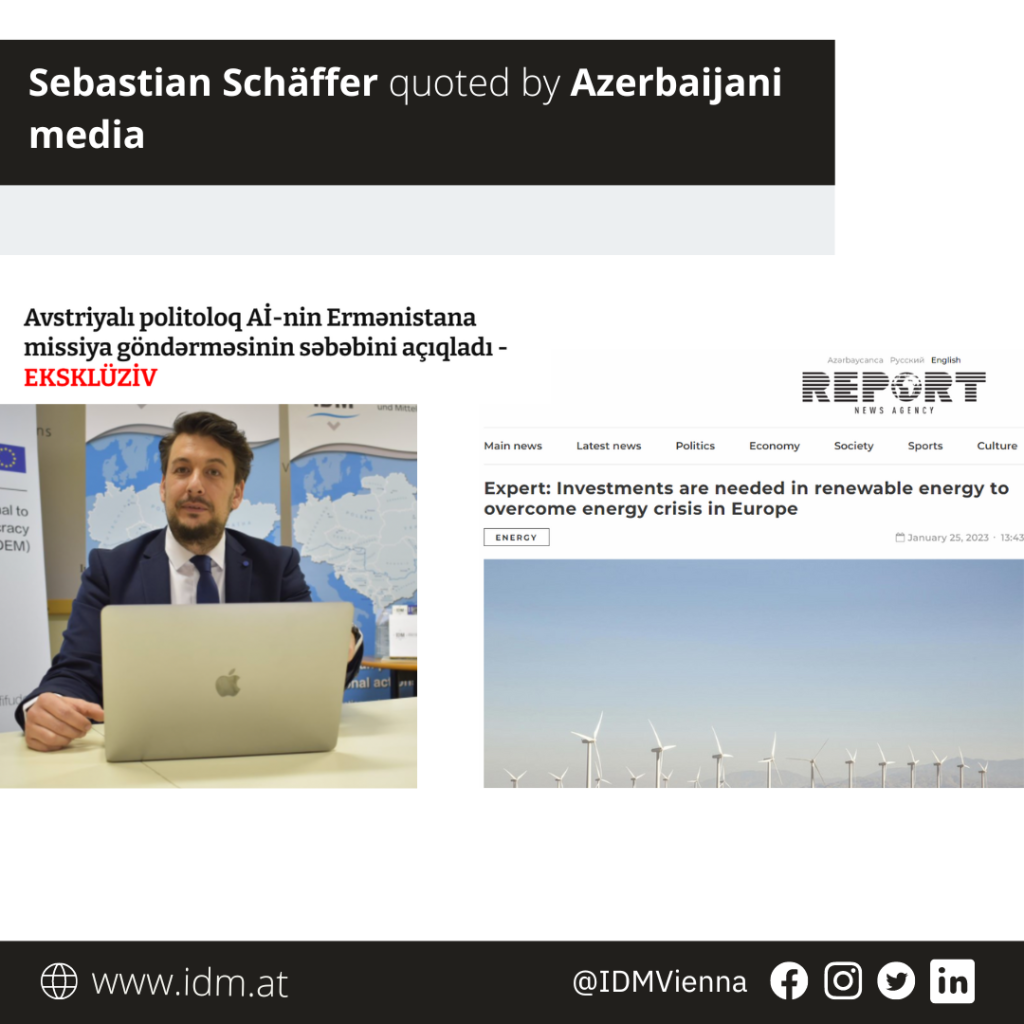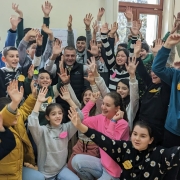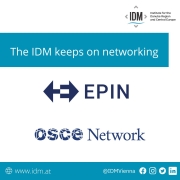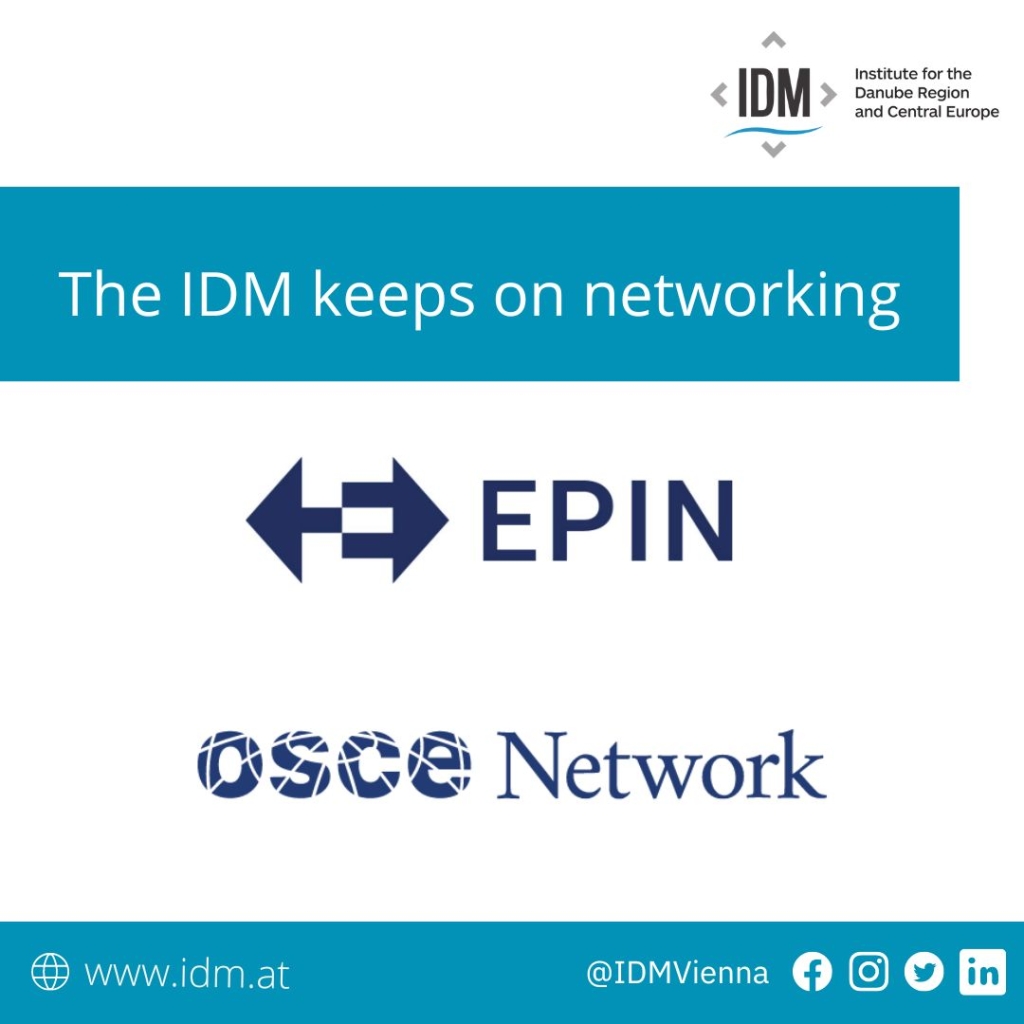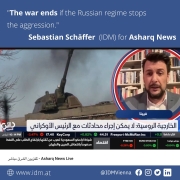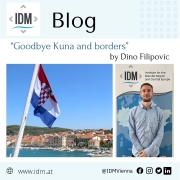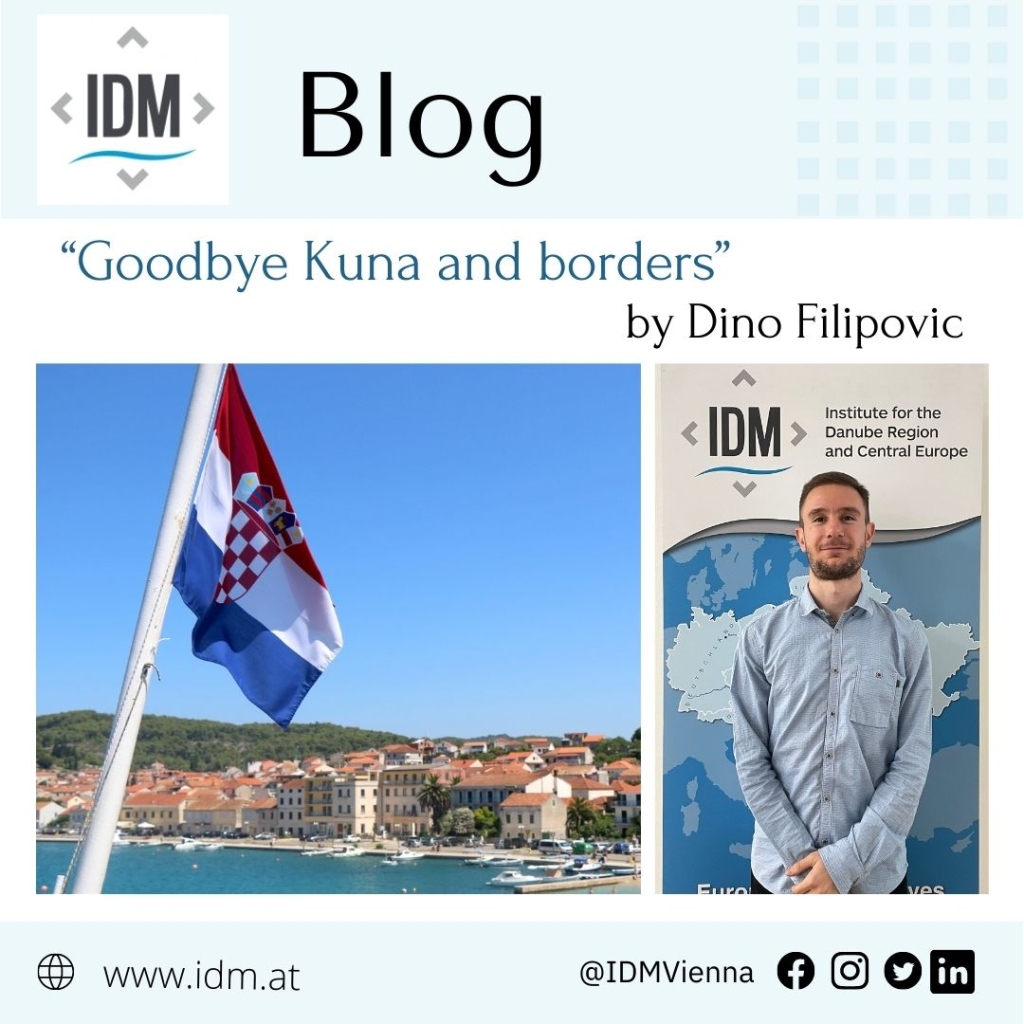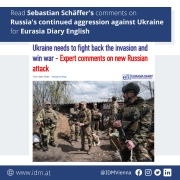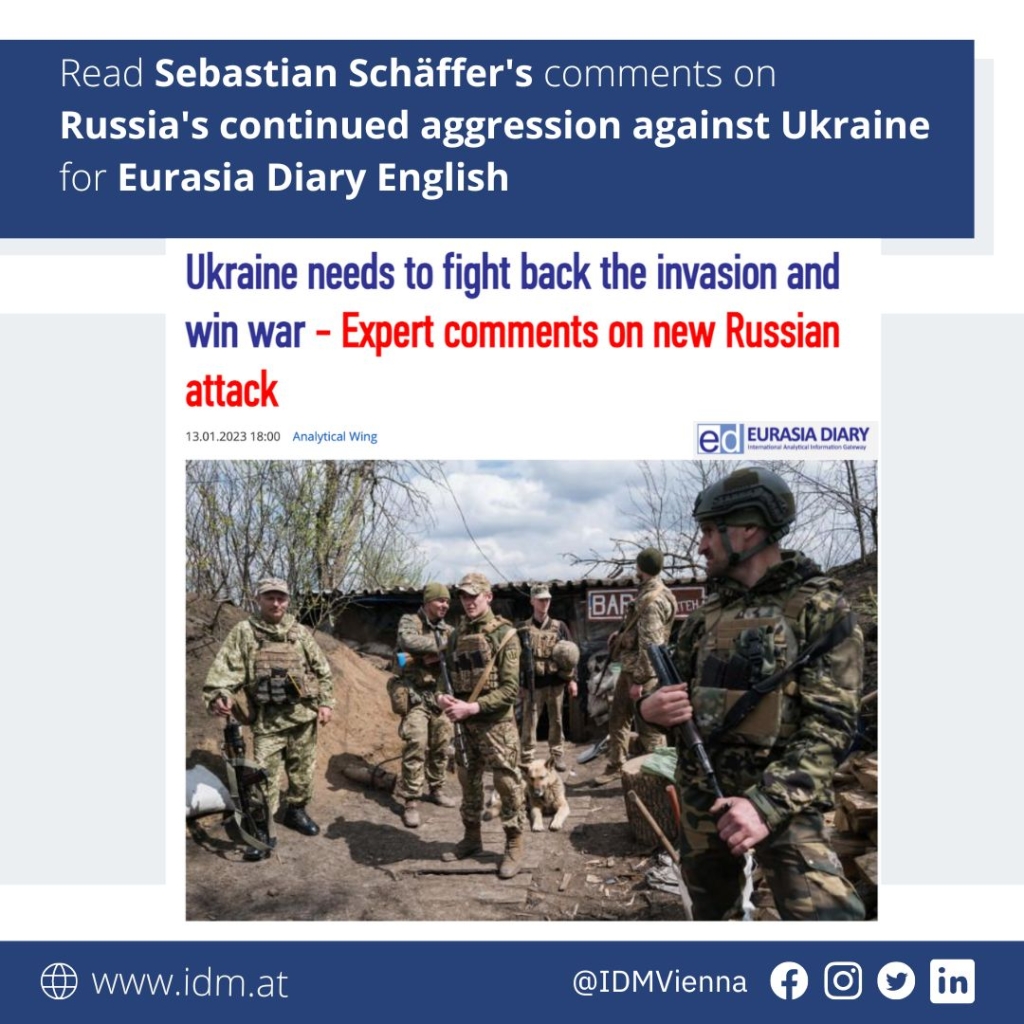Montenegro at the crossroads to the EU

In her blog article Darija Benić, IDM’s former trainee, explains the reasons for political instability in the context of approaching presidential elections in Montenegro.
The previous year has seen many unresolved issues in Montenegro, which have deepened its ongoing political crisis, attracting a lot of attention far beyond its borders and challenging its accession to the EU. After regaining its independence in 2006, it seemed that Montenegro should not face any major obstacles to becoming the next EU Member State. But is that really the case?
Montenegro declared independence from the State Union of Serbia and Montenegro in 2006. After applying for EU membership in 2008, the country started the accession process officially in June 2012. So far, Montenegro has started all 33 of her negotiation chapters and has tentatively finished 3 of the total number. With Russia’s brutal war of aggression in Ukraine, Montenegro has also shown that it is 100% aligned with the EU’s common foreign and security policy, including all sanctions against Russia. At the same time, however, various EU officials have realized that Montenegro’s accession appears to be stalling. What happened?
One of the decisive moments that affected the political atmosphere and increased internal tensions was the signing of the “Fundamental Agreement” with the Serbian Orthodox Church in August 2022. It guarantees the Serbian Orthodox Church ownership of churches and monasteries on the territory of Montenegro, which, as the Democratic Party of Socialists stated, is violating the Constitution of Montenegro and will move the country further away from the EU. Relations with Serbia remain challenging but both sides are willing to work toward discussing open issues. Besides addressing the question of Serbian Orthodox Churches in Montenegro, some of the issues also include Montenegro’s accession to the Open Balkan regional initiative (a so-called mini Schengen zone in the Western Balkans), as well as the extradition of Svetozar Marović (the former president of Serbia and Montenegro charged on suspicion of being involved in corruption and smuggling), the ongoing economic crisis, and the attitude towards Russia’s invasion of Ukraine, where Serbia still hasn’t imposed sanctions, although it has condemned the invasion. Another issue, which is closely related to the previous, is membership in the NATO alliance. Montenegro has been a member of the alliance since 2017, but not Serbia, which claims military neutrality. One of the main reasons for this is that the expansion of NATO is fiercely opposed by Russia, from which Serbia has support in the matter of Kosovo, as well as dependence on Russian gas supplies. Kosovo is another point of differing attitudes between Montenegro and Serbia; in 2008, Kosovo declared its independence from Serbia, which Montenegro was among the first countries to recognize.
Apart from its relations with Serbia, which had a major impact in the previous period, there are additional issues at the national level in Montenegro that are affecting its path to the EU. Polarization, a lack of productive dialogue between political parties, and a failure to forge consensus on crucial issues of national interest led to the resignation of two turbulent governments. This political unpredictability and instability has affected the proper functioning of Montenegrin institutions. Due to the Parliament’s failure to elect new members and the incomplete composition of the key judicial bodies, the Constitutional Court was unable to fulfill its role as of mid-September because there was no quorum. It has only three judges out of a total of seven, therefore it cannot make decisions on constitutional appeals, which also refer to election processes. Without the final decision of the Constitutional Court, it is not possible to constitute a new government after the election.
Furthermore, the governments and the parliament have failed to demonstrate in practice their engagement as regards the EU-related reform agenda. In order to secure institutional and political stability, Western allies and the EU have been urging Montenegrin political leaders for months to come to an agreement on unblocking the constitutional court. If the judges are not chosen, the European Union has threatened the possibility of terminating accession negotiations with Montenegro. Given the current situation, this warning could have been anticipated and it is clear that, after 10 years of negotiations, the country has never been faced with such a blockade as it is now at the beginning of 2023.
Hopes were high after the last election in 2020, where Đukanović and the ruling elite did not openly interfere. The collapse of Europe’s longest consecutive ruling government (the DPS had been in power since 1989) and the democratic change has raised hopes that prosperity is possible after all, but there’s a long way to go. Many believed that Montenegro had finally left behind the regime that did not reflect the reality in this multiethnic country and was only a manipulation particularly designed for the international public.
The presidential elections in Montenegro
The fourth presidential election, since the restoration of independence and the seventh since the introduction of the multiparty system will be held on 19 March. From either side, it is uncertain who exactly will be running for president. There isn’t even a distinct coalition in sight. The fact that there are only two months until the presidential elections and the public is unaware of a single trustworthy candidate on either side is striking. Moreover, it appears that everyone is in some way shocked that the elections are taking place right now.
In a number of media appearances, the current Montenegrin president, Milo Đukanović, refused to say whether he would run for office again. It is also unknown whether, by the day of the election, Montenegro will have a functional constitutional court, which is necessary for the announcement of the election’s final results. The sixth round of judges‘ elections is underway, as the previous five attempts failed due to the impossibility of reaching an agreement between the ruling majority and the opposition.
Prime Minister Dritan Abazović assessed that the selection of constitutional court judges could be completed at the beginning of February. And the president of the parliament, Danijela Đurović, said that all political actors must show maximum responsibility and contribute in order for the country to emerge from the political and institutional crisis.
Montenegro has been given the opportunity to once again attempt to stabilize the situation, but with very short deadlines and with everything moving dynamically, we have yet to see how the political elites respond in the upcoming months. What is the way out of this current situation? The priority should be to unblock the constitutional court in order to correct the country’s constant political instability, focus on its long-standing European ambitions, and form a government that can prioritize EU reforms.
Darija Benić– a student in the Master’s program in Planning and Management of Tourist and Cultural Systems at the University of Bari Aldo Moro (Italy) and a former trainee at the IDM ( July to December 2022). She holds a BA degree in Languages and Cultures for Tourism and International Mediation from the same university.

